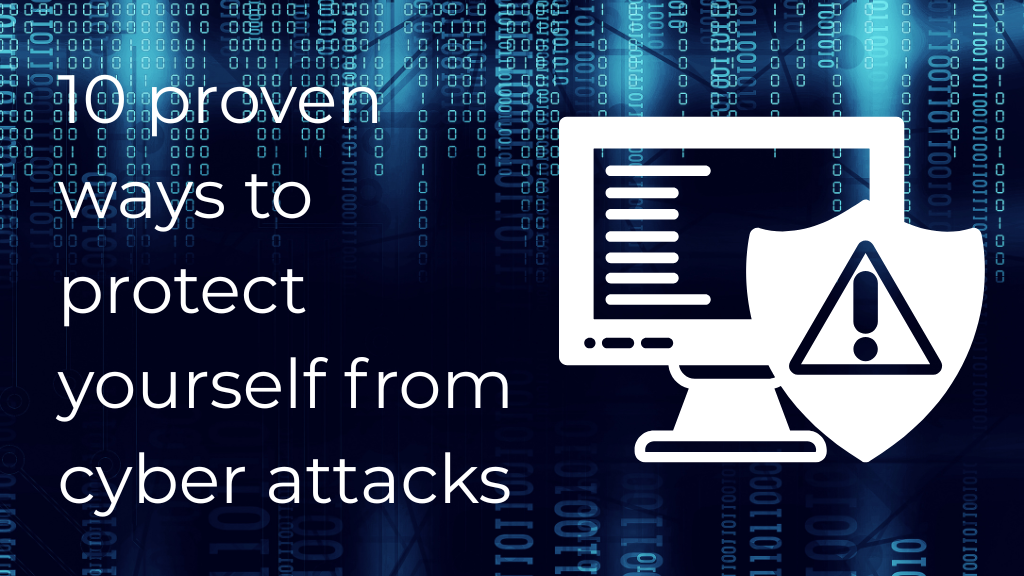


Tejhaksh Technologies is the Website designing & Digital Marketing company based in Neemuch, established in 2020 providing Website design, Website development, Logo design, Domain Registration, Web hosting, Android App Development, eCommerce web development, Search Engine Optimization, Bulk SMS etc. We have good experience in developing different platform websites and we keep our eye on the latest technologies to implement on the website for better conversion and user experience.

In today’s digital age, almost every aspect of our lives is connected to the internet—from online banking and social media to shopping, email, and cloud storage. With all these conveniences comes a serious threat: cyber attacks. Hackers are constantly devising new ways to steal sensitive information, spread malware, and exploit security vulnerabilities.
But the good news is that you can protect yourself by following some simple yet effective cybersecurity practices. By applying these cyber attacks safety tips, you’ll be able to reduce risks and safeguard your online presence.
Here, we’ll discuss 10 effective ways to protect yourself from cyber attacks and stay safe online.
Here are Top 10 of the most effective ways to protect yourself from cyber attacks
A strong and unique password is your first line of defense against cyber attacks. Most hackers can access accounts because people often use weak or similar passwords. Using a strong password is one of the simplest and most effective security measures.
If your password is something easy like “123456” or “password,” cybercriminals can crack it in seconds using basic hacking tools.
To stay safe, always create passwords that include uppercase and lowercase letters, numbers, and special characters. For example, instead of using your name or date of birth, create a random and complex password like “T!gr0n#92Kp”.
It’s also essential to use a different password for each account. If you use the same password everywhere, a hacker can access all your accounts by cracking just one password.
Keep your passwords updated regularly to prevent cyber attackers from hacking them.
Pro tip: Use a password manager to securely store your passwords and generate unique ones.
Sometimes, even the strongest passwords we create can be compromised through phishing, malware, or data breaches. Therefore, enabling two-factor authentication (2FA) is the most effective way to secure your accounts. Two-factor authentication (2FA) adds an extra layer of security to your account by requiring an additional step after your password. After logging in, you will be asked to confirm your identity using a second method, such as a code sent to your phone, email, or an authentication app.
You should enable 2FA on all your important accounts, such as Gmail, Facebook, Instagram, online banking apps, and cloud storage services. This ensures that even if a hacker steals your password, they won’t be able to log in without the second code.
Authentication apps (like Google Authenticator or Authy) are more secure than SMS codes.
Pro Tip: Always use an authentication app like Google Authenticator or Authy instead of SMS codes, as SMS can be intercepted. 2FA makes it extremely difficult for hackers to access your sensitive information.
Outdated software is one of the easiest ways for hackers to breach your device. Cybercriminals exploit security vulnerabilities in old operating systems, browsers, and app versions to install malware or steal sensitive information. To stay safe, always update your operating system, web browser, and applications as soon as updates are available.
Pro Tip: Keeping your software up to date significantly reduces your risk of cyberattacks and helps protect your personal and financial data.
Phishing is a common cyber attack where hackers trick you into clicking on malicious links or sharing sensitive information. These attacks often look like legitimate emails from banks, companies, or colleagues.
Pro tip: Trust your instincts – if an email seems suspicious or urgent, it’s safer to ignore it or verify it through official channels.
Antivirus software and firewalls are essential tools for protecting your devices from malware, ransomware, spyware, and other cyber threats. Antivirus programs scan files, applications, and websites for malicious code, blocking threats before they can harm your system. Keeping your antivirus up to date ensures it can detect the latest viruses and hacking techniques.
A firewall acts as a barrier between your computer and the internet, monitoring incoming and outgoing traffic to prevent unauthorized access. Most operating systems have built-in firewalls, but third-party options can offer additional protection.
Install a reputable antivirus program (such as Norton, Bitdefender, or Kaspersky).
Keep it updated to detect new threats.
By combining antivirus software with a firewall, you create a robust defense against cyberattacks. Together, they help protect sensitive data, prevent unauthorized access, and reduce the risk of malware infections, keeping your digital life secure.
Pro Tip: These tools serve as the first line of defense against harmful programs.
Your Wi-Fi network is the gateway to your personal and professional life. If it’s not secure, hackers can steal your sensitive information, slow down your internet speed, or even use your connection for illegal activities. Securing your Wi-Fi is essential for protecting your privacy, data, and devices.
Pro Tip: A secure Wi-Fi network ensures secure browsing, prevents unauthorized access, and keeps your digital life safe.
A VPN is one of the most effective ways to secure your online activity. It works by masking your real IP address and encrypting all your internet traffic, making it extremely difficult for hackers, advertisers, or even your internet service provider to track your browsing behavior. This is especially important when using public Wi-Fi networks in cafes, airports, or hotels, where cybercriminals often lurk, monitoring unsecured connections to steal data.
However, not all VPNs are trustworthy—free or unknown providers may log your activity or sell your data. Always choose a reputable, paid VPN service with strong encryption and a no-logs policy.
One of the most important steps in cybersecurity is backing up your data. Cyberattacks, such as ransomware, can lock, corrupt, or delete your files, leaving you without any copies. Regular backups ensure that even if hackers access your system, your valuable data remains safe and recoverable.
Store your backups in at least two places: cloud storage and an external hard drive. Cloud storage services offer easy access and security, while an external drive ensures you have an offline copy that hackers cannot access.
To make this process easier, set up automatic backups so you don’t forget.
Check your backups periodically to ensure they are working correctly.
A good backup strategy protects your data, minimizes downtime, and gives you peace of mind.
Pro Tip: With backups in place, your data will be safe, even if hackers attack your system.
Social media is a prime target for hackers because people often share personal details without considering the risks. Hackers frequently gather personal information from social media to launch targeted attacks. Information such as your birthday, phone number, home address, or travel plans can be used by cybercriminals for identity theft or phishing attacks.
To stay safe, avoid sharing too much sensitive information (like your phone number, home address, or travel plans).
Always review your privacy settings to ensure that only trusted people can see your posts.
Be wary of friend requests—hackers often create fake profiles to lure users. Similarly, don’t click on suspicious links or messages, as they may contain malware or lead to scams.
Don’t click on unknown links or accept friend requests from strangers.
Pro Tip: Remember, once something is posted online, it’s difficult to completely remove. Think twice before sharing and protect your digital footprint, as your information can be used against you.
Cyber threats are constantly evolving, and staying informed is the best defense. Hackers are constantly developing new scams, phishing techniques, and malware, so awareness is crucial.
Follow reputable cybersecurity blogs, news sites, or government advisories to stay up-to-date on the latest threats.
To further enhance your knowledge, consider attending online webinars, training programs, or awareness sessions whenever possible.
Learning to identify suspicious emails, fake websites, and social engineering tactics reduces your risk of becoming a victim of a cyberattack.
Pro tip: The more you know, the less likely you are to fall victim to a cyberattack.
In today’s digital world, cyber attacks have become a constant threat, but the good news is that with awareness and the right practices, you can protect yourself. Using strong passwords, enabling two-factor authentication, regularly updating your software, and implementing measures like VPNs and data backups—these 10 proven tips for protecting yourself from cyber attacks will help you maintain strong security.
Remember, cybersecurity isn’t a one-time thing—it’s a habit. Stay vigilant, keep learning, and maintain your digital security just as you maintain your physical safety. Cybersecurity isn’t something you set up once and forget. It’s an ongoing process, like locking your doors every night or wearing a seatbelt in the car.
The more vigilant and aware you are, the harder it will be for hackers to target you. By understanding and consistently practicing these habits, you can enjoy the benefits of technology with peace of mind, knowing that your data and privacy are safe.
Leave a Comment